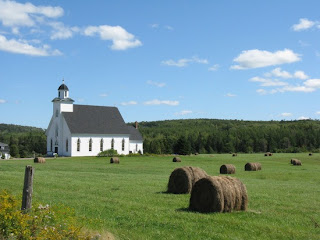A Nice Quote Concerning Contemporary vs. Traditional Worship
Every now and then one finds a succinct statement about worship worth repeating. This one was found on the website of the Anglican Catholic Church : While contemporary worship may entertain, it also tends to isolate us from the historic and universal Church by reflecting back to us our own culture and tastes. The Anglican tradition emphasizes the timeless nature of Christian worship. Our liturgy (literally "work of the people") encourages us not only to know the Jesus of the Bible, but to experience Him through the sacramental life, drawing us out of our narrow and self-contained existence and into the loving presence of God. My summary: Contemporary worship reflects us back to our own culture and tastes. It is therefore bound to a small range of experiences and personal desires and not reflective of the communion of saints throughout time. Traditional, thus liturgical worship, emphasizes the timeless nature of Christian worship. It ne...


